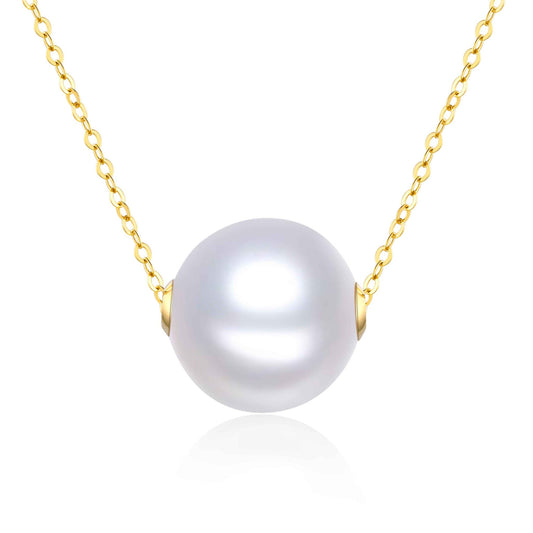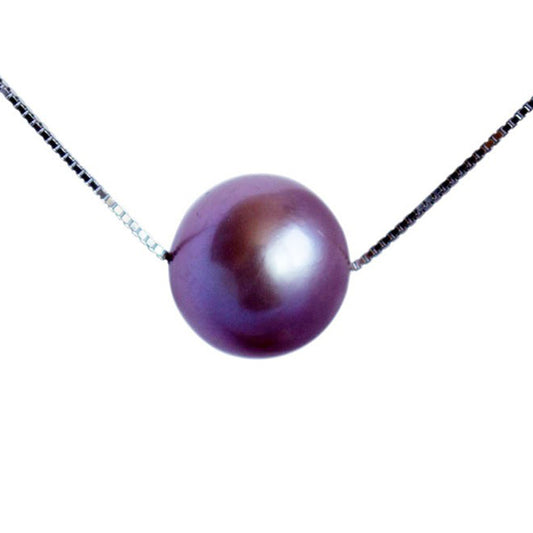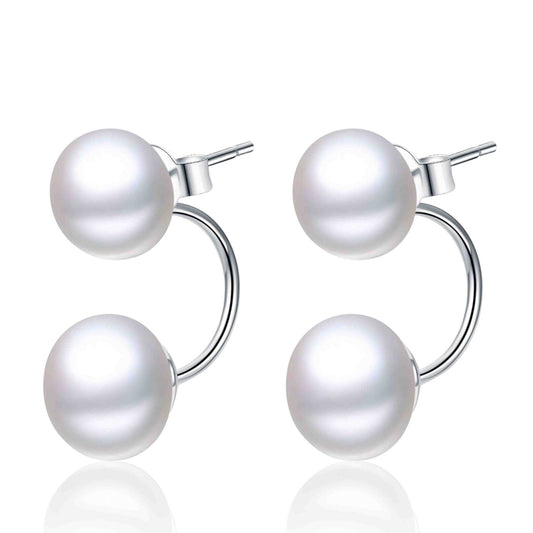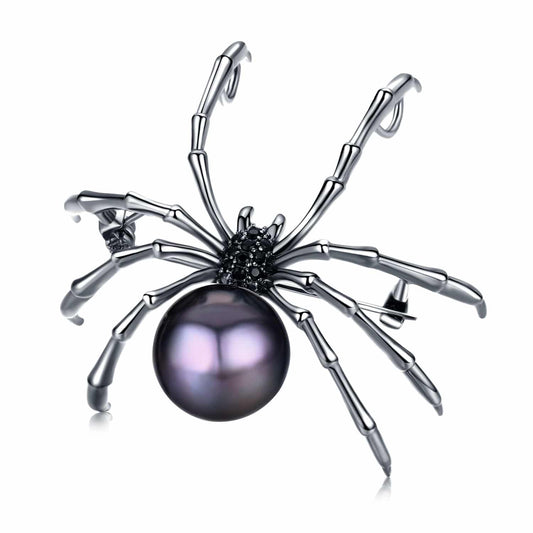Alexis stretched out on her back in the sun. She was lying in her bikini on the deck of a fancy hotel. She was engaged! Max had proposed on her birthday and then whisked her away to this beautiful hotel where they had access to a breathtaking pool overlooking the ocean, all the cocktails they could ever want, and a never-ending stretch of beach. At night it came alive with dancing, and dinner was served on the top floor of the hotel every night, with a 360-degree view of the city lights on the one side, the ocean on the other. In all the excitement, she had almost forgotten about grandma’s letter. But Max was out taking a surf lesson and she had decided to spend the morning by the pool with grandma’s letter.
Dear Alexis,
This story is about our ancestor named Rin and what happened before she received the pearl necklace. In most of our ancestors’ stories, love played a big role. In this one it does too – but a different kind of love. The love called friendship.
Rin was a young woman very aware of the power of money. Her friends dreamed of falling in love, but Rin, who lived with her parents in a tiny house in the city, thought only of money. Every week, Rin’s work was to collect the groceries from the market. Her mother trusted her with the money, because Rin was so good at striking bargains with the sellers, that she sometimes came back with money left over.
“All right,” said her mother one day when Rin had come back with money a second time. “I appreciate you trying to save some money for our family, but perhaps it’s time you had your own. Whenever you come back with money left over, you may keep half.”
This only increased Rin’s determination. She started haggling with every seller, even the old woman at the entrance who sold nuts and who Rin knew was very poor. “These nuts are bad quality. I can’t take this to my mother!” she would say.
The sellers in the marketplace started recognizing her as the stingy girl who would start a fight over a handful of rice. Some fought her back, others just shook their heads and dropped their prices. Rin felt proud. “I’ll never be poor like my parents,” she thought to herself.
But she couldn’t help noticing that her trips to the marketplace every week – even though she took pride in her careful way of working with her family’s money – had become unpleasant. No one was willing to offer her a place to sit to eat her lunch anymore, and one day she forgot her water bottle at home and no-one offered her water. The man who sold mandarins just turned his back on her, even though he was usually one who didn’t argue back when she tried to get his prices down.
She took a seat at a nearby stream, drinking straight from it. “I’ll look after myself then, if all these people can’t see I’m doing it for my family,” she thought angrily. She couldn’t understand why everyone was angry with her for protecting her family’s hard-earned money.
The stream ran close to the entrance of the marketplace. Rin sat down for a while, leaning her back against a rock and letting the sun warm her face. She noticed that not far from her, a bit downstream, was an older man also sitting on his own.
“Did they turn their backs on you too?” asked Rin. Usually, she kept to herself, but that morning’s harsh treatment from the market people had got to her. She felt just a tiny bit lonely.
He didn’t answer. She got up to go closer. Was he writing something?
“What are you writing?” she asked.
He jumped. “I didn’t notice you,” he said. “A poem. Would you like to hear it?”
Rin shrugged. “Why do you write? Do you get paid for it?”
“No. I want to. Because it makes me feel good.”
Rin kept silent. She’d always thought money was the only thing that could really make you feel good. But when he started to read, something in her became silent and it was as if all her senses started listening along.
Rin kept going to the marketplace. It became a ritual: first the haggling, then a drink of water, a poem and a chat with Doi – this strangely happy, yet seemingly lonely, man next to the stream. She loved the poems, but it didn’t change her mind about the importance of money. Each week, Rin came home with even more money. Her mother became worried. “Rin, what will the people say if we pay less than everyone else? It’s a small community, people talk.”
Rin’s mother had become aware of people treating her differently too. At first, she thought nothing of it, but then someone asked her what she did with all the money Rin brought home, and she was shocked. But Rin was so excited about the money she was saving. Each week after a marketplace trip, she would count her savings. One day they walked past a shop selling beautiful scarves and Rin wanted one badly, her mother could tell, but she refused to use her savings.
“Rin, what will you do with the money if you don’t want to use it? Is all this fighting worth it if you won’t even buy something for yourself?”
Rin shook her head. Her mother wouldn’t understand. She was tired of being poor. And buying scarves was no way to become rich.
Yet every week, she sat down to listen to Doi’s poems, which were about everything else but money. He wrote about nature. The mountains in the distance, the forest nearby, the stream. Sometimes when she looked at her surroundings on her walk home, it would feel as if she was seeing life through one of Doi’s poems. The way the leaves rustled in the wind, or the grass bent flat when you sat on it, leaving an imprint of a young girl.
Then one day Doi was silent, and he wouldn’t read.
“Please? What is wrong, why won’t you?” she begged, feeling suddenly desperate.
He shook his head. “I have become aware of an opportunity. But it’s one that I can’t take, because I have no money. And I am struggling with my emotions. I think if I read to you today, it will come out ugly and you won’t enjoy it.”
“What opportunity?”
“The emperor has asked poets to bring their work to him so he may choose writers to work in the court. It is a chance for me to be recognized, for my work to be appreciated by many, but I will need to travel to the capital and I have nothing.”
He was silent for a moment. “I can barely take home bread for my wife and daughter,” he said softly, ashamed.
Rin nodded. She knew what it was like to be poor.
“How much do you need?” she asked, and he told her. She would never have considered it, ever. But the amount Doi needed was exactly the amount she had saved over several months of fighting with marketplace sellers.
She shook her head in silence. Never.
But the next week, Doi again refused to read. He was downtrodden and hadn’t written anything in days.
Rin went home and told her mother about Doi’s mood, the opportunity, and the idea which she couldn’t shake.
Her mother was surprised. “You mean you want to give your money away? Why?”
“If it works, it will make many more people happy than just me.” It almost hurt her to say it. Why did she ever have this idea?
She gave Rin a hug. “Do what you feel is right, child.”
Rin did, and Doi went. He was overwhelmed by the gift – and surprised. He knew what the marketplace people said about her. But it motivated him even more to give the Emperor only the very best of his writing.
And just as Rin had predicted, Doi was chosen as one of the court’s writers. His family could eat, became wealthy even.
And Rin? The night after she gave Doi the money, her mother presented her with the family’s heirloom pearl necklace. Rin stared at the perfect white pearls in her hand, and all she could think of was how Doi would describe them – and it made her happier than any money she’d ever had.
“I hope you know that what you did for Doi is as pure as these pearls. You gave up your own dream for another’s, and that is noble.”
But Doi didn’t forget about Rin. A few months later a pouch arrived. Inside was the exact amount that Rin had given him, and a poem dedicated to Rin. She stopped fighting with the sellers in the marketplace. Somehow her friendship with Doi had made her see them differently. Instead, she offered to help at one of the stalls, earning her own wage. It was less than what she used to make, but when the longing to have more struck her, she would touch the pearls and remind herself that being kind-hearted was worth much more than money could buy.
*******
Do you have heirloom pearls that you can pass on to your children that will remind them that kind-heartedness is worth more than anything money could buy? Visit our shop to start your own heirloom pearl tradition.




